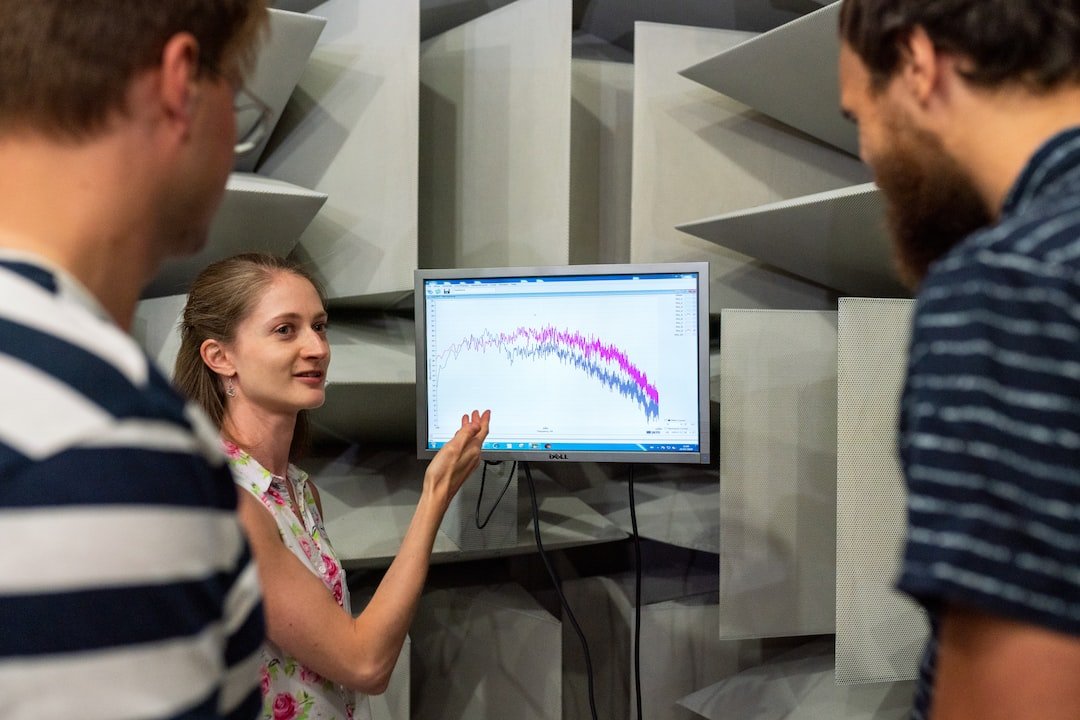Home Organ Transplantation Surgery Organ Transplantation Complications Organ Transplantation Success Rate Organ Transplantation Rejection
Revolutionizing Tissue Engineering: The Role of Organ Biomaterials
Category : Tissue engineering | Sub Category : Biomaterials in tissue engineering Posted on 2023-07-07 21:24:53

Revolutionizing Tissue Engineering: The Role of Organ Biomaterials
Introduction:
Tissue engineering holds the potential to change medicine and healthcare. Researchers are using biomaterials to create functional organs and tissues that can address the growing demand for organ transplants and enhance patient outcomes. In this post, we will explore the fascinating world of organ biomaterials in tissue engineering and their significance in overcoming the challenges of organ transplantation.
Understanding bio materials
There are materials that interact with biological systems. These materials are designed to provide a suitable environment for cell growth, differentiation, and eventually for the formation of functional tissues and organs. In tissue engineering, biomaterials act as scaffolds that support cell attachment, proliferation, and the formation of new tissue. They can be used as vehicles for delivering therapeutic agents or as cell carriers to aid in the regeneration process.
Organ biomaterial role
Organs are used in tissue engineering to address major challenges in organ transplantation. They can be tailored to mimic the unique properties of various organs, allowing for successful integration and function within the recipient's body. Here are some ways in which biomaterials are changing the way we do tissue engineering.
1 Organ structure can be replicated.
Three-dimensional structures made of bio materials mimic the architecture of specific organs. By replicating the intricate cellular and extracellular matrix networks, biomaterial scaffolds provide a suitable microenvironment for cells to grow and differentiate into functional tissues.
2 Encouraging cell absorption and growth is important.
Organs are designed to promote attachment and growth. They give the necessary signals for cells to differentiate into different cell types. The engineered tissues can be compared to their natural counterparts in terms of structure and function.
3 Supporting the flow of blood.
Tissue engineering can be difficult to create functional blood vessels within engineered tissues. Organ biomaterials can be designed with intricate structures that allow for the growth of blood vessels and the supply of oxygen to the developing tissue. This vascularization is important for larger organs.
4 Enhancing biocompatibility and integration is something that is done.
Excellent biocompatibility is required for tissue engineering to avoid adverse reactions. Organ biomaterials are designed to promote seamless integration with the surrounding tissues. This ensures that the organs are viable for a long time.
Future perspectives
The use of organ biomaterials in tissue engineering has yielded promising results, with successful applications in various organs. Scaling up to larger organs, achieving full vascularization, and integrating complex functions are some of the challenges that need to be overcome.
Scientists are looking at new materials to improve the efficacy of organ biomaterials. 3D printing technology and organ-on-a-chip systems offer exciting possibilities for organ biomaterials in the future.
Conclusion
Organ biomaterials are used to create functional organs and tissues. These biomaterials are paving the way for new treatments and solutions in organ transplantation. Tissue engineering holds great promise for improving the lives of many people in need of organ replacements.
Leave a Comment:
SEARCH
Recent News
- Zurich, Switzerland has long been known for its exceptional quality of life, beautiful surroundings, and high standard of healthcare. In contrast, the Russian healthcare system has faced various challenges and struggles over the years. Let's delve into the differences between the healthcare systems in Zurich, Switzerland, and Russia.
- Navigating Medical Device Regulations in Zurich, Switzerland
- In the bustling city of Zurich, Switzerland, finding healthy fast food options can be a challenge. However, with a little exploration and curiosity, you can discover some fantastic spots that offer nutritious and delicious meals on the go.
- YouTube Content Creation: Exploring the Russian Healthcare System
- In today's digital age, YouTube has become a powerful platform for content creators to share their knowledge and expertise with a global audience. One particular niche that has been gaining traction on YouTube is the creation and translation of content related to medical devices regulation.
- Are you looking for tips on creating YouTube content about healthy fast food options and the importance of translation in reaching a wider audience? Let's dive into how you can combine these two aspects to create engaging and informative videos for your channel.
- Exploring the Russian Healthcare System: Insights from a YouTube Channel
- Navigating the Regulatory Landscape for Medical Devices on YouTube
READ MORE
3 months ago Category : organb

Zurich, Switzerland has long been known for its exceptional quality of life, beautiful surroundings, and high standard of healthcare. In contrast, the Russian healthcare system has faced various challenges and struggles over the years. Let's delve into the differences between the healthcare systems in Zurich, Switzerland, and Russia.
Read More →3 months ago Category : organb

Navigating Medical Device Regulations in Zurich, Switzerland
Read More →3 months ago Category : organb

In the bustling city of Zurich, Switzerland, finding healthy fast food options can be a challenge. However, with a little exploration and curiosity, you can discover some fantastic spots that offer nutritious and delicious meals on the go.
Read More →3 months ago Category : organb
